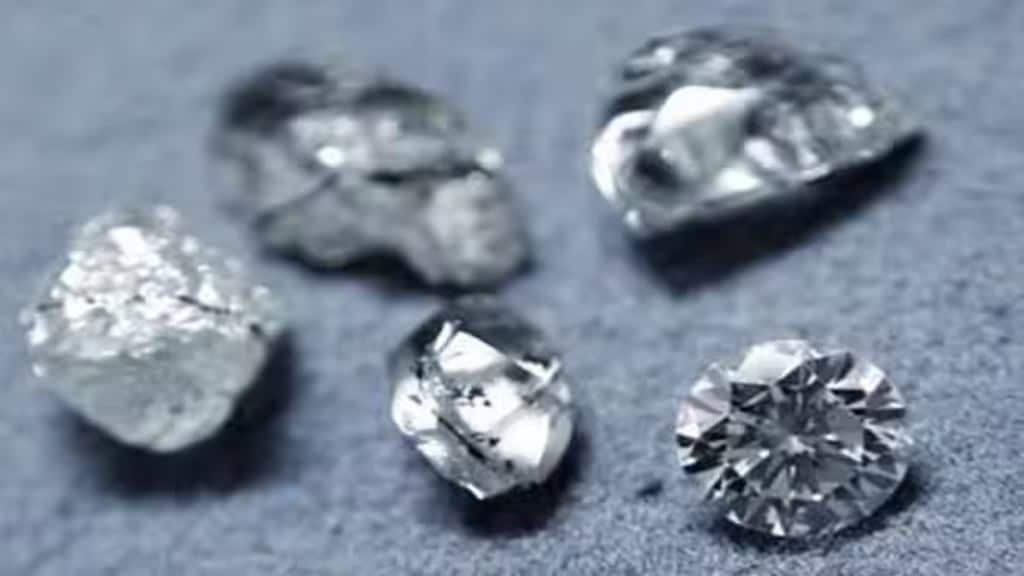Surat, situated on the banks of the Tapi river, is known as India’s diamond city as it processes 80-90% of the world’s diamonds. Of late, however, the city is making headlines for the wrong reasons. Over the past few weeks, Surat has registered nine cases of suicide – all of workers engaged in the diamond industry – a portent of the ominous times the once glittering trade is going through.
The unfortunate saga started a month ago when a diamond worker aged 55, his wife and two adult children died after they reportedly consumed a poisonous substance due to financial distress after he lost his job of 30 years. The incident has sent shockwaves across the city among the 5,000 diamond cutting and polishing factories employing over a million people, nearly 90% of them migrants from Gujarat’s Saurashtra region.
The Surat Diamond Workers’ Union claims that more than 20,000 workers in the industry have lost their jobs. But those who are still employed are in dire straits. There was a time when the industry used to work the whole year without any long holidays, except for the Diwali season when the workers were allowed to avail a month’s leave to visit their hometowns. But now, the workers are being forced to work just five days a week, that too with reduced work hours. They are reportedly also being compelled to avail unpaid summer break of 20 to 25 days.
Reduced weekly work hours have impacted the salaries of the workers who are getting 30-35% lower salaries than what they used to get previously.
The reason for the industry’s is obvious — the ongoing Russia-Ukraine war, economic instability in European and other western countries. India’s gems and jewellery exports fell from Rs 1.82 trillion in FY22 to Rs 1.76 trillion in FY23. And the prospects aren’t bright either. In the past three months; the business has shrunk by almost 30-35%.
Versions, however, vary. While industry association claims the situation isn’t that bad as is being made out to be, trade unions have a different story to tell.
Vijay Mangukiya, regional chairman of the Gem and Jewellery Export Promotion Council (GJEPC), justifies the reduction in work hours and the prolonged summer break as a way of averting large scale unemployment. Mangukiya says there has been no significant price drop in the diamond market. What is also holding up the domestic market demand is the growing popularity of lab grown diamonds or chemical vapour deposition (CVD) diamonds which have provided a much needed stability to the market.
How, however, admits that in the last three months, the exhibitions and trade fairs have not lived up to expectations. The Russia-Ukraine war has also resulted in supply shortages for the rough diamonds in the industry and caused economic instability. Further, increased inflation has reduced the purchasing power of the consumer.
Russian rough diamond constitutes almost one-third of the total raw material demand of the industry and the war has disturbed the easy and seamless process of diamond import. The total rough diamond supply from Russia has come down to under 10% against the more than 35% prior to the war, said industry sources.
NanuBhai Vekariya, president, Surat Diamond Association, dismissed all the claims of workers losing their jobs. Manufacturers, in fact, are facing a shortage of workers. The domestic market, he says, is doing very well and the buying in the coming festival season will revive the industry.
Unions wonder why then is the industry cutting jobs and reducing pay. Bhavesh Tank, Surat zone president, Diamond Workers’ Union, says, the Surat Diamond Association “doesn’t care about the welfare of the workers, all they care about is their profitability. The post-Covid boom in business has brought them a significant amount of profits and now they do not want to compromise on those profits. Because of salary cuts and job losses many of the diamond workers are looking for alternate livelihood options like agriculture and other manual jobs.”
Tank says the employers make “their own absurd rules that are unfavourable to the workers”. For example, in the name of professional tax, the employer deducts `200 per month from the wages of the workers. “How can someone be asked to pay professional tax if they are not contractual workers? The employers do not have any responsibility towards the workers.”
Even as the verbal duel goes on, the families of the deceased workers in Surat have only seen the diamonds turn to dust.

